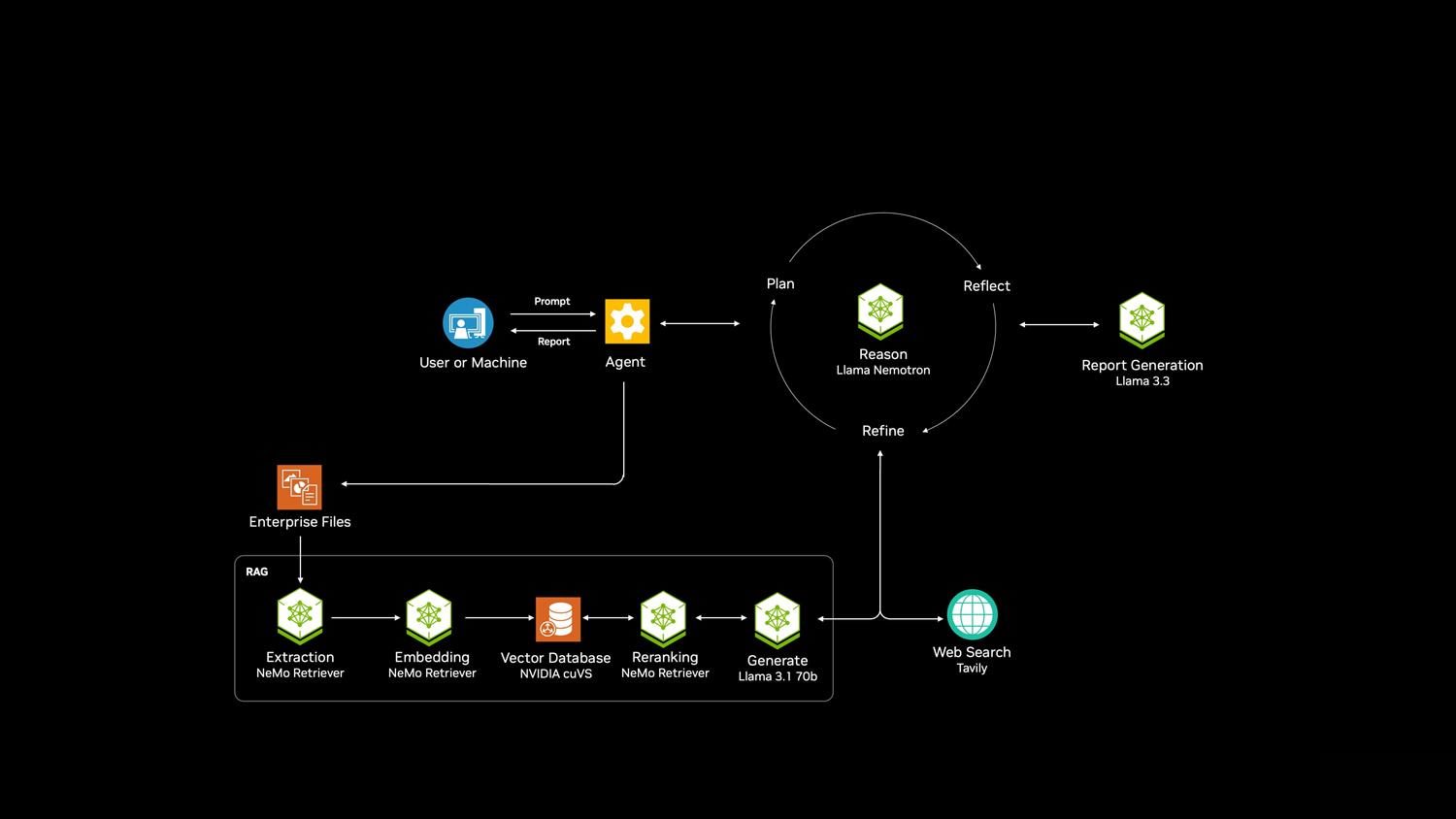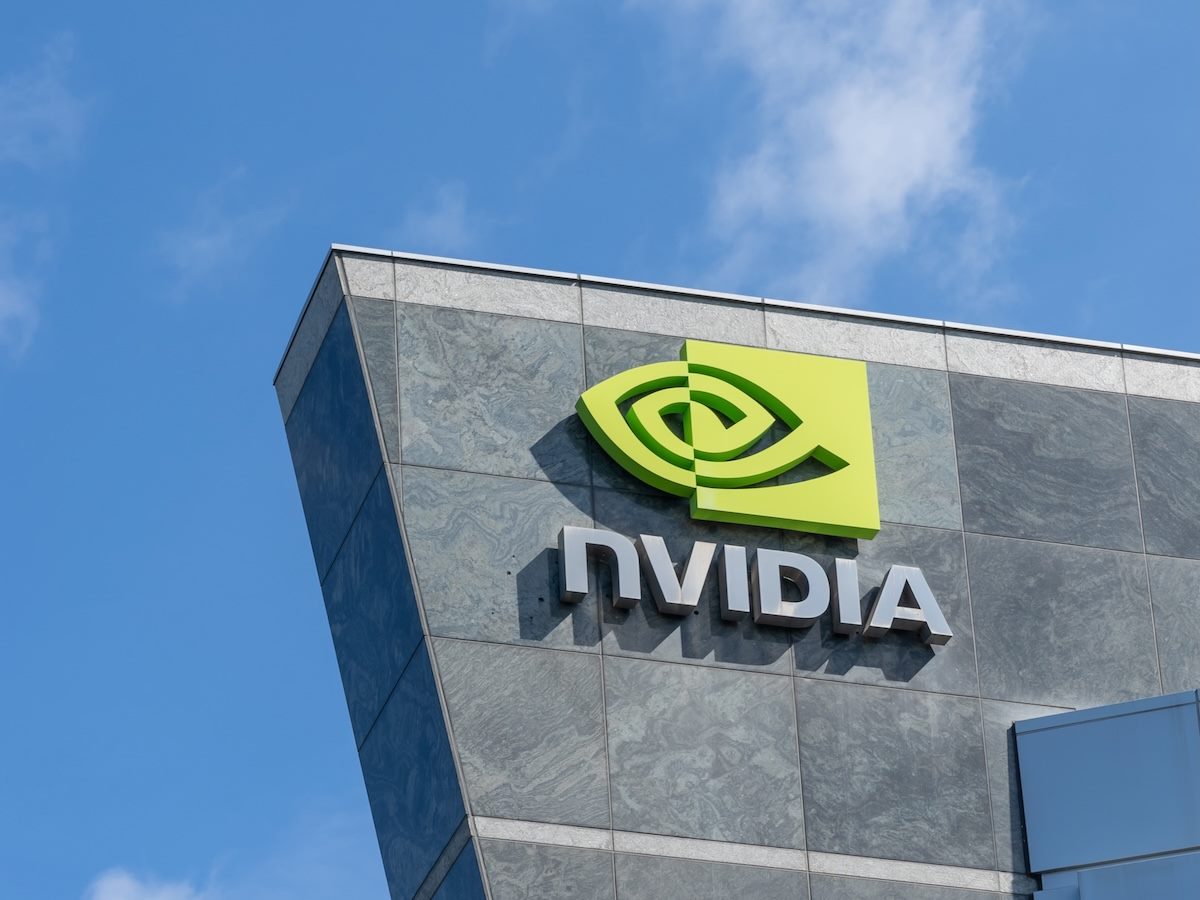NVIDIA made its name in AI with its chips, but its AI offerings don't stop there.
At the NVIDIA GTC developer conference in mid-March, the company introduced AI-Q Blueprint, a significant step forward in the realm of autonomous AI agents. AI-Q Blueprint allows developers to create sophisticated AI agents with seamless access to knowledge bases, enabling them to operate independently and make informed decisions.
Built on Nvidia's NIM microservices and integrated with NeMo Retriever for fast information retrieval, AI-Q Blueprint paves the way for more sophisticated and capable AI systems. By leveraging Nvidia's accelerated computing capabilities, partner storage platforms and software tools (including the newly introduced Llama Nemotron reasoning models), AI-Q Blueprint is a robust foundation on which to build AI agents that transcend existing limitations.
According to Nvidia, this marks a pivotal moment in the evolution of enterprise AI, where technology not only supports but actively transforms the way businesses operate.
AI-Q Is Built for Scale and Transparency
AI-Q is built for flexibility. It works across existing multi-agent systems and its transparency and traceability will help enterprises better understand agent performance, Anay Nawathe, director and cloud lead at the Information Services Group, told Reworked. This combination of scope and transparency are its key differentiators.
The AI-Q Blueprint integrations with tools like Salesforce, Jira and ServiceNow means agents can now streamline workflows originally intended to work across teams and team members. Nawathe explained that AI-Q Blueprint's access to varied, multimodal data sources means Nvidia's Llama Nemotron models will develop more informed and potentially more nuanced insights.
The Llama Nemotron advanced AI models are designed to excel in reasoning and a wide range of agentic tasks. They're optimized for deployment across various platforms, from data centers to personal computers. Nvidia is already collaborating with companies such as Accenture, Amdocs, Atlassian, Box, Cadence, Microsoft, SAP and ServiceNow to integrate these models.

“The Blueprint is designed to integrate across tooling and knowledge bases that span the enterprise,” Nawathe said. “Many AI agent implementations in the market have been isolated to individual tasks, akin to an intelligent RPA workflow. The AI-Q Blueprint advocates for cross-functional collaboration through integration.”
However, challenges remain, Nawathe added. While AI-Q is designed for integration with other AI systems, the legacy systems and knowledge sprawl in many organizations cannot be easily integrated.
The value of integration across knowledge bases must also be weighed against the security and compliance risks it opens up, he said. Security, risk and compliance teams may be reluctant to provide full access to these agents. Organizations working on smaller-scale agent use cases may also not be interested in adjusting their current approach for the reach of AI-Q Blueprint.
Horizontal, Not Vertical Integration of AI Agents
Intellectia AI CTO and co-founder Tony Tong described AI-Q Blueprint's ability to seamlessly integrate knowledge bases with autonomous agents as a "fundamental breakthrough in operational intelligence."
The elimination of rigid, pre-defined processes means businesses can now deploy AI agents that "learn, reason and respond in real time" using both structured and unstructured data across systems, he told Reworked. The result supports dynamic decision-making, something that's particularly valuable in industries like finance, customer service and supply chain management, where real-time access to evolving information is crucial.
Tong highlighted one of AI-Q’s most notable aspects: its impact on agent interoperability. "Traditionally, AI agents are built vertically, operating in silos with narrow scopes," he explained. AI-Q’s modularity and pre-wired workflows enable horizontal integration across business functions, facilitating cross-functional automation. This results in "faster prototyping for developers, greater reuse and fewer dependencies on custom infrastructure."
Finally, Tong described NeMo Retriever as a "game-changer in multimodal information access." This access to knowledge across diverse formats, including text, images, PDFs, databases, transforms scattered information into contextualized knowledge. The result is enhancements to AI’s understanding and reasoning in fields like healthcare and legal services, where critical information is often scattered across different sources.
Next Step? Orchestrating the 'Zoo of Choices'
AI-Q Blueprint presents an advantage for companies concerned about time-to-market and ROI expectations, SoftServe head of R&D Bohdan Khomych said.
“The use case isn't new, but the enterprise value is in the details: another 5% in accuracy while preserving and improving speed is still super beneficial and an effective byproduct for all areas of business, even as decreasing costs is one of the main objectives for production deployment. If you can get the most reliable pipeline prebuilt, it curbs a lot of headaches,” he said.
The integration of agentic AI will change the way development teams work, Khomych continued. “If today several engineers use ChatGPT or Copilot to solve a problem, in the future AI agents will become an integral part of this workflow,” he said. Agents will perform routine tasks such as testing or maintaining infrastructure, increasing senior engineers' productivity as a result.
The main challenge is orchestrating “the zoo of choices” available on the market to achieve better results and keep up with market updates, he added. “Here, you should be strategic about realizing AI-Q benefits for your business, focusing on security, on-prem deployment and GPU efficiency."
Editor's note: Can't get enough of agentic AI? Read on:
- Who Watches the AI? Why Agentic AI Needs Observability Platforms — Agentic AI has greater potential but also higher risks than traditional LLMs. Observability platforms play a part in making sure things don't go off the rails.
- Will Your Next Hire Be an AI Agent? — Autonomous AI agents are making their way into every corner of the workplace. A look at where we are and where we're headed.
- Zoho Enters Agentic AI Fray With Zia Agents — Zoho's new AI agent platform, Zia Agents, is built for its own productivity suite. The agentic AI integrates seamlessly across the over 50 Zoho workplace apps.
